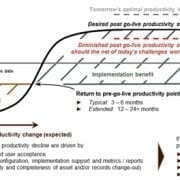Selling Your Products: DIY Or Distributors?

There are two primary options for this:
DIY Selling
As a DIY seller, you will be responsible for:
- Selling the product for yourself. This can mean pitching and selling to retail stores; selling the product online using an ecommerce site; or selling through a third party.
- Dealing with customer issues, returns, and refunds.
- You will also be responsible for photographing the product to be sold online.
- You will package and send all products.
The alternative option…
Distributor Selling
A distributor effectively acts as a middleman, so your products are no longer your responsibility when they have left your warehouse.
- The distributor will buy your products directly, and then sell them on wherever they see fit.
- A distributor will usually sell to a retail store. The store is then responsible for customer service, sending the items out if they sell online, and all the associate work.
When you have a product to sell, it’s vital that you work out which is best for you. Below is an overview of all the different areas you have to consider, as well as some suggestions as to which option might best suit your needs.
Workload
If workload is a problem for you, then you may want to consider distributor selling. After all, you’re a manufacturer; you just produce the product. You may not have the skills and connections required to pitch the products to store; nor do you have the time to build a good customer service department or send large amounts of packages on a daily basis.
If you opt for DIY selling, then you have to be aware that your workload is likely to be substantial. You’re going to be responsible for the entire process; the manufacturing of the product, the pitching to stores, the advertising, the sales, and the customer service. If you are a small business then this is usually manageable due to the smaller quantities of products you are responsible for. Larger businesses, dealing with higher product numbers, may find this more difficult; outsourcing some of these tasks to a distributor will likely be beneficial.
Profits
Of course, it’s important to consider which of the above options will make you the most money.
It is easy to assume that DIY selling is the winner here, but there are hidden costs that you have to be aware of. When you sell your own products, you can charge the retail price for them, which should mean that you make more money. Distributors will buy at a wholesale price, which is usually substantially lower than the retail price.
However, with DIY selling — if you want to do it right — you are going to incur additional experiences. You’re going to have to find top Magento developers to help you build the most user-friendly ecommerce store; you will need to pay for web space and a domain name; you’re going to have to take product photographs; and you’re going to have to pay shipping costs to get the items to customers. You will have to run the numbers and ensure that these costs are factored into your purchase price.
Despite this, DIY selling is more lucrative if you are a small business, so stick with this method if it is working for you. As you grow in future — or if you are already anticipating a high number of orders, you may want to consider expanding into distributor selling.
Simplicity
When it comes to evaluating the choices on the basis of simplicity, there is a clear winner: distributor selling. Distributor selling takes a huge number of problems off your hands; you don’t need to worry about marketing, pricing, interacting with customers, or any other such issues. You can just focus on what you’re good at; making the best product you possibly can.
Involvement In The Business
As useful as the simplicity of distributor selling is, it does rather separate you from the process. This is useful, but it also means that — ultimately — your business is in the hands of others.
This separation from your end customer can be problematic, especially when considering the future of your business. You will not have the opportunity to directly see what customers are buying, which products are doing well, and which are performing poorly. Instead, you will get this information second-hand, often months after the data was collected; you only find out when the distributor places another order.
If you’re in the early days of your business, you need customer feedback. You need to know, as quickly as possible, which items are proving a hit– so you can make more of them. You also need to know which items aren’t really working out; you shouldn’t keep manufacturing a product which is not selling well. Gathering this data for yourself with DIY selling is worth doing, so this may be your best choice in the founding years of your business.
By the time you have been in business for awhile, the need for immediate feedback and direct customer interaction is reduced. You will have built a name and a reputation, and you should also have honed your business instincts so you can have an idea of what products might be a success.
So Which Is Best?
Reading through the above, the solution is rather stark.
If you are a new business, a small business with no immediate plans for growth, or a lifestyle business, then your best option is almost certainly DIY selling. You have more control, you have access to the data, and you stand to make more money from individual sales. It’s unlikely businesses of this size are producing enough products to make selling for wholesale price a viable option.
If you are a medium to large business, or have immediate expansion plans that want to turn into a reality, then distributor selling might be the best choice for you. You can focus more on your product and less on your sales techniques, and you’ll be manufacturing a high enough volume to make wholesale prices worthwhile.
Hopefully this guide has been able to assist you in making the right decision for your company. Good luck.















Leave a Reply
Want to join the discussion?Feel free to contribute!